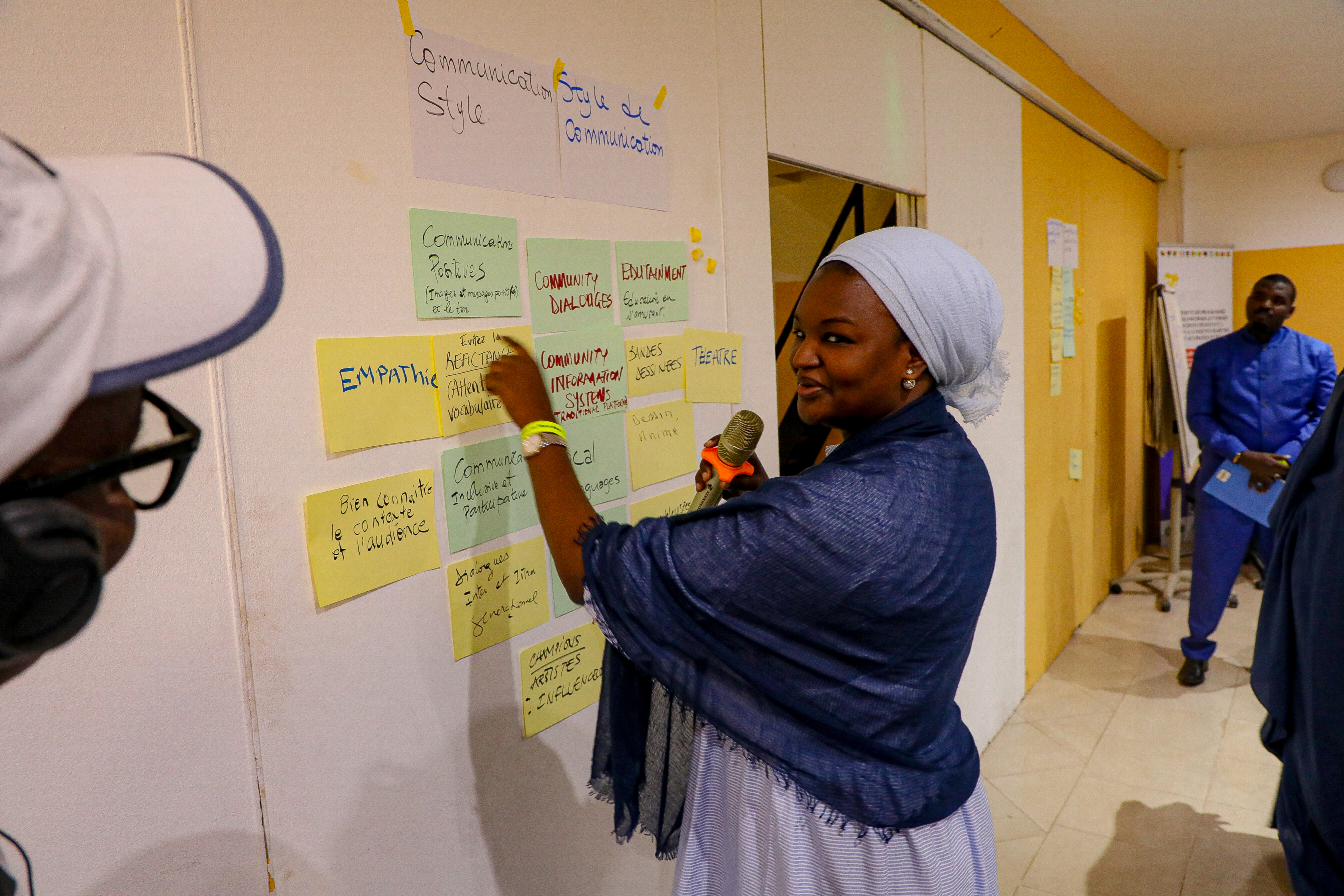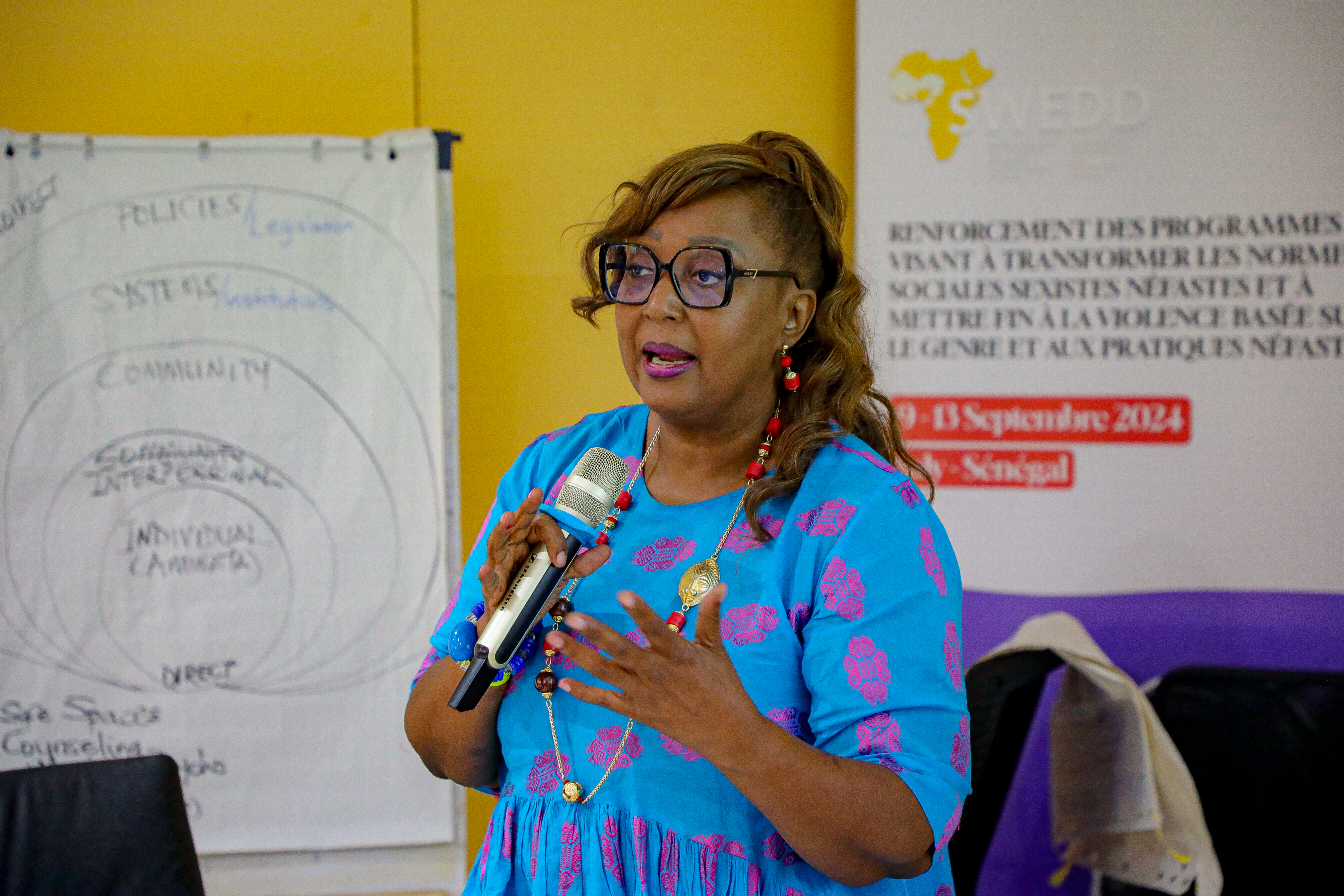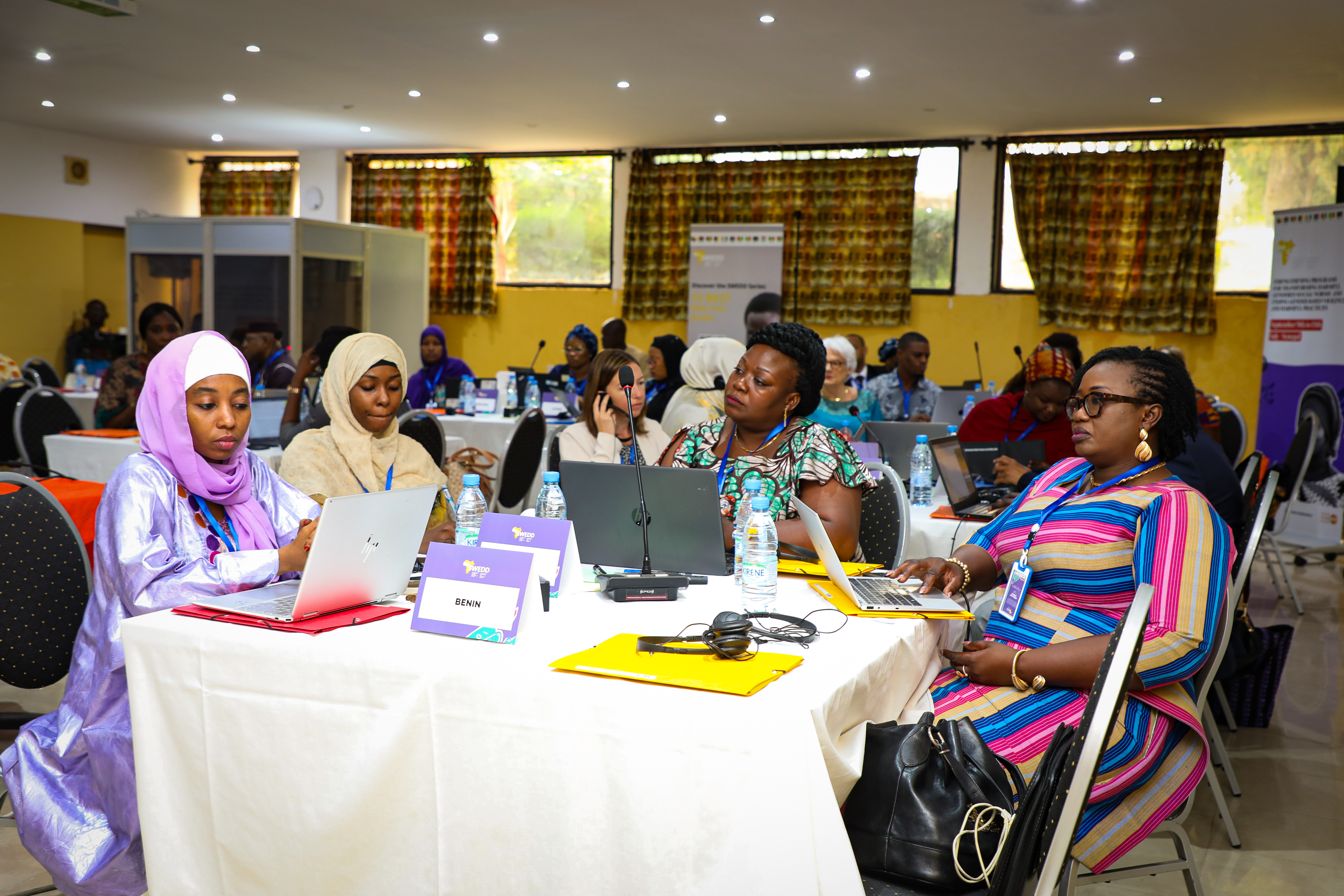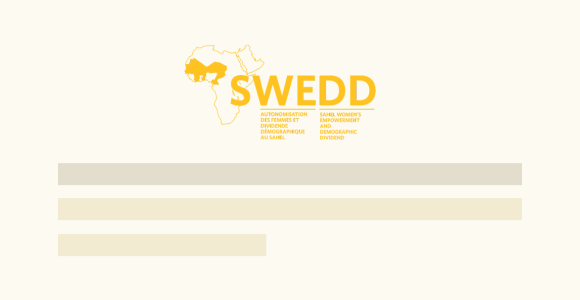

NEWS
Efforts to end gender-based violence and harmful social norms in West Africa take a step forward at SWEDD regional workshop
14 October 2024

Saly, Senegal - How do we stop female genital mutilation? Why is child marriage still so prevalent? Why is positive masculinity unnoticeable in our communities? These were the pressing questions at the heart of a critical workshop held in Saly, Senegal from September 9th to 13th, 2024. Over 50 representatives from 13 countries across West and Central Africa convened to address the deeply rooted issue of gender-based violence in the region.

The capacity-building workshop, organized under the Sahel Women's Empowerment and Demographic Dividend (SWEDD) project, in collaboration with the Gender and Human Rights Unit of UNFPA, highlighted the critical role of education and community engagement in transforming these norms. Through sessions designed to equip participants with practical tools, the workshop emphasized evidence-based strategies to challenge these practices while respecting the cultural values of the communities involved.
With support from Plan International, Tostan, and the World Bank, the workshop aimed to foster a deeper understanding of these issues, demonstrating a shared commitment to creating a future where all women and girls in the region can live free from violence and discrimination.
>> Watch the workshop video
Empowering change through education and dialogue
One of the key takeaways from the workshop was the importance of education in changing long-standing beliefs. One participant shared a moving personal testimony that underscored the need for deeper understanding and dialogue in fighting Female Genital Mutilations (FGM).
“I used to believe in FGM a lot,” she revealed. “But I followed the course and the modules on health, and I learned about the female organs without being forced. I understood the dangers and started raising awareness. When I told my mother I didn’t want to cut my daughter, she refused. She’s a very conservative, traditional woman, and for her, it was unheard of not to cut. She said, ‘You have been cut—why are you doing this?’ But I struggled to give her convincing arguments, and I kept trying to make her understand."
>> Watch the video on fighting FGM
Despite her efforts, her family’s traditional views prevailed, with devastating consequences.
"The day I went to sign my work contract, she excised my daughter. It was very shocking. I lost my daughter. It was hard to surmount this. That’s when she realized she had done something terrible. And it gave me the strength to continue and fight FGM.”
Her testimony illustrated the difficult cultural and familial challenges that still persist around FGM and highlighted the critical need for education and dialogue within communities.
Key modules and sessions drive learning
The workshop was structured around a series of interactive sessions designed to strengthen participants' ability to diagnose harmful social norms and design effective interventions. A key focus was on equipping attendees with tools like the Social Norms Toolkit and the Essential Services Package (ESP) for women and girls. These evidence-based resources allowed participants to understand the complexities of harmful practices like FGM, identify the underlying social dynamics, and implement appropriate solutions.

A particularly impactful session introduced participants to Tostan’s Community Empowerment Program (CEP), a model that has successfully driven community-led initiatives to promote human rights and gender equality. This approach, which includes non-formal education, literacy training, and income-generating activities, has led to measurable reductions in harmful practices like FGM across multiple communities. The session demonstrated how community engagement and local leadership are essential to achieving lasting change.
>> Watch how Tostan has made an impact
Another valuable session focused on the survivor-centered approach to GBV case management. Participants were trained to ensure that survivors' safety, emotional well-being, and rights are prioritized throughout the process of managing GBV cases. This session emphasized the importance of multisectoral coordination—bringing together healthcare providers, legal professionals, and social workers to deliver comprehensive care and support to survivors.
Participants also engaged in hands-on exercises, including diagnosing social norms and developing strategies for norm change. One exercise guided attendees through the creation of public declarations aimed at influencing community behaviors, similar to those used in Ethiopia to combat FGM. The importance of reaching a "critical mass" within communities, where enough members adopt new practices to inspire wider change, was underscored as a key strategy in transforming harmful norms.
Looking ahead: Action Plans for change
As the workshop concluded, each participating country presented an action plan aimed at strengthening interventions in their communities. These plans were tailored to the specific social and cultural challenges each country faces, with a focus on transforming harmful practices through education, community engagement, and policy reform.

The event not only provided participants with a robust understanding of how to challenge harmful gender norms but also facilitated cross-country collaboration and shared learning. Moving forward, the successful implementation of these country plans, coupled with ongoing technical support, will be critical to sustaining the momentum generated during the workshop.
This regional gathering was a significant step toward achieving the broader goals of gender equality and ending gender-based violence in West and Central Africa. Through a combination of evidence-based interventions, personal testimonies, and collaborative strategies, participants left the workshop equipped with the knowledge and tools to drive meaningful change in their respective communities.
